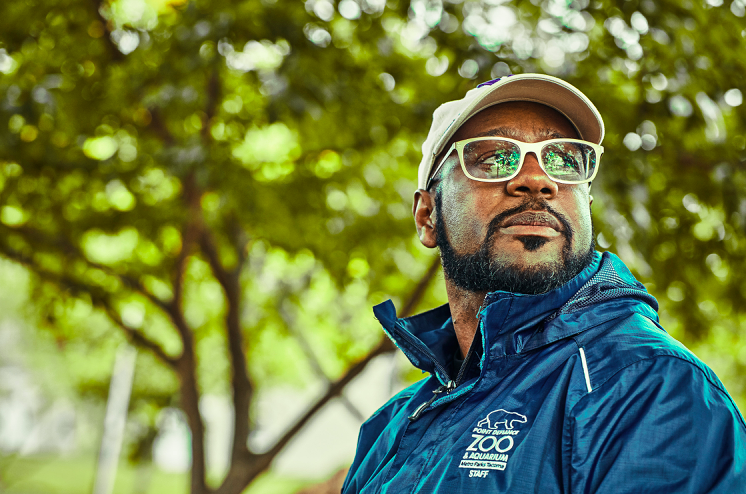Published on January 25, 2020

Christopher Schell will tell you he’s a black nerd. He’ll tell you he was up at 3 a.m. the night before a conference because his infant son would not sleep. He’ll tell you the students who work in his lab at the University of Washington, Tacoma are paid rather than expected to volunteer. He’ll tell you social and economic inequality is an ecological issue. And he’ll tell you that studying the behavior of coyotes in cities reveals how race and class shape the neighborhoods and natural environments where people and animals live.
For Schell, an urban ecologist, recognizing all of these realities at once and sharing his story—all of his story—is crucial to challenging expectations about what a scientist looks like, sounds like, acts like and prioritizes. “Just being about the science is not good enough,” he told a roomful of wildlife experts in June.
Schell, who joined UW Tacoma last year as an assistant professor, is determined to use the charismatic species he studies to deliver a message about racism and inequality. As his work and interests have evolved, Schell says he finds it harder to ignore that everything is connected. If you pull one lever, another moves. That’s how he can get from urban wildlife to social justice in just a few steps. “If I can tell you that coyotes are linked to racism,” he says, “I got your ear.”
Continue reading at University of Washington Magazine.
Originally written by Julie Davidow for University of Washington Magazine.